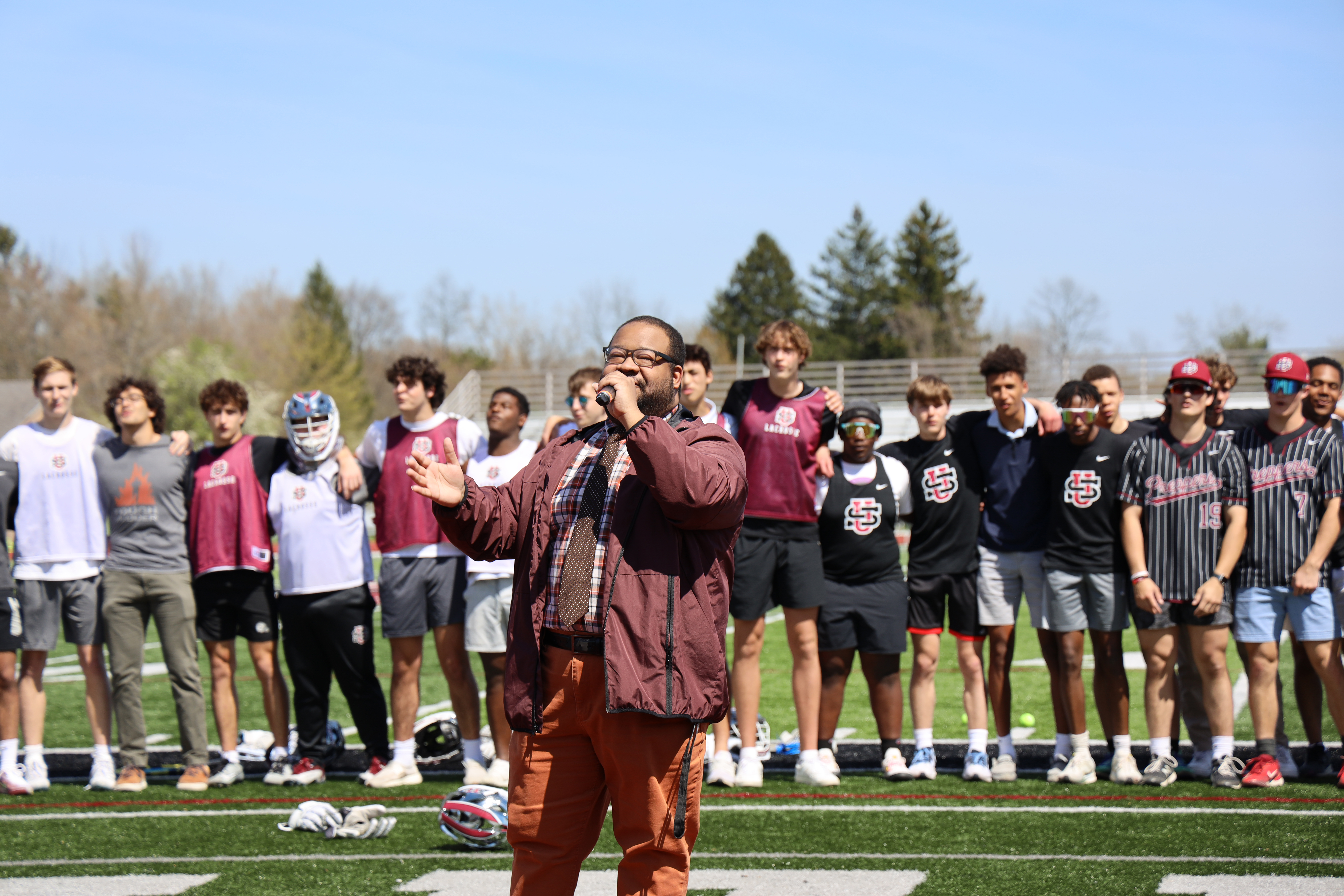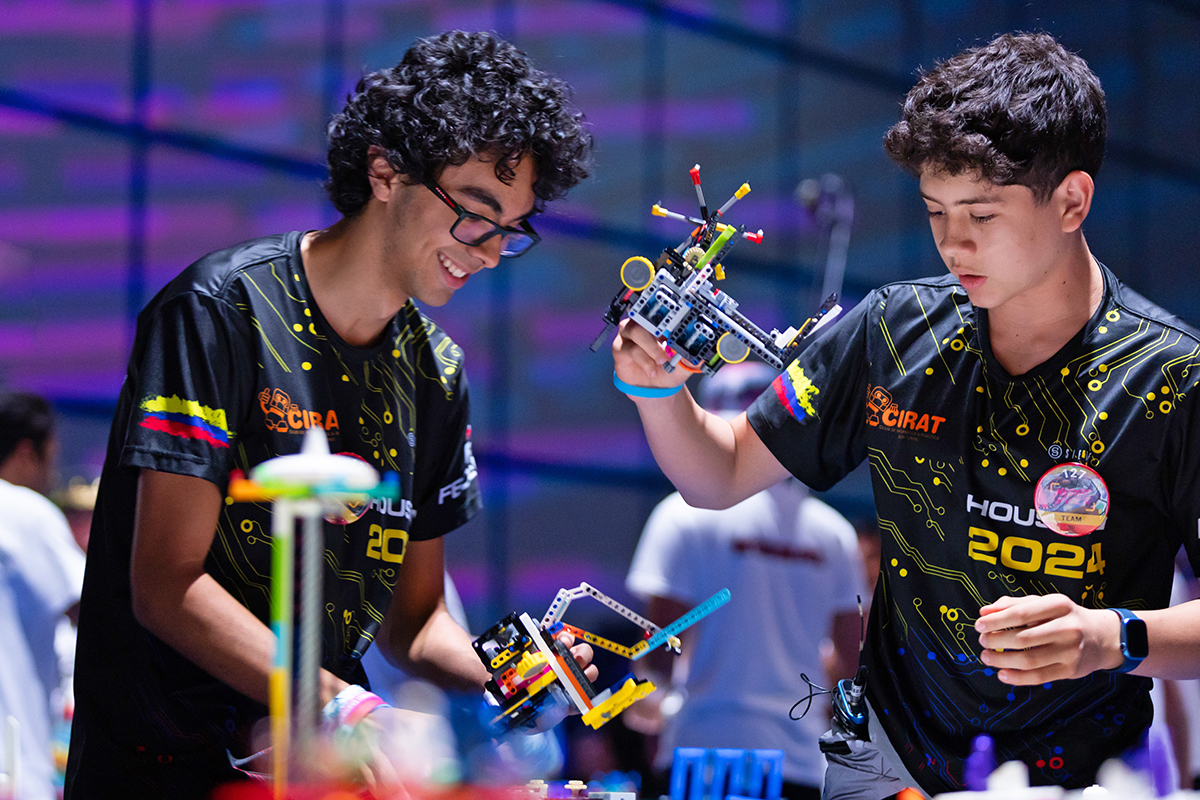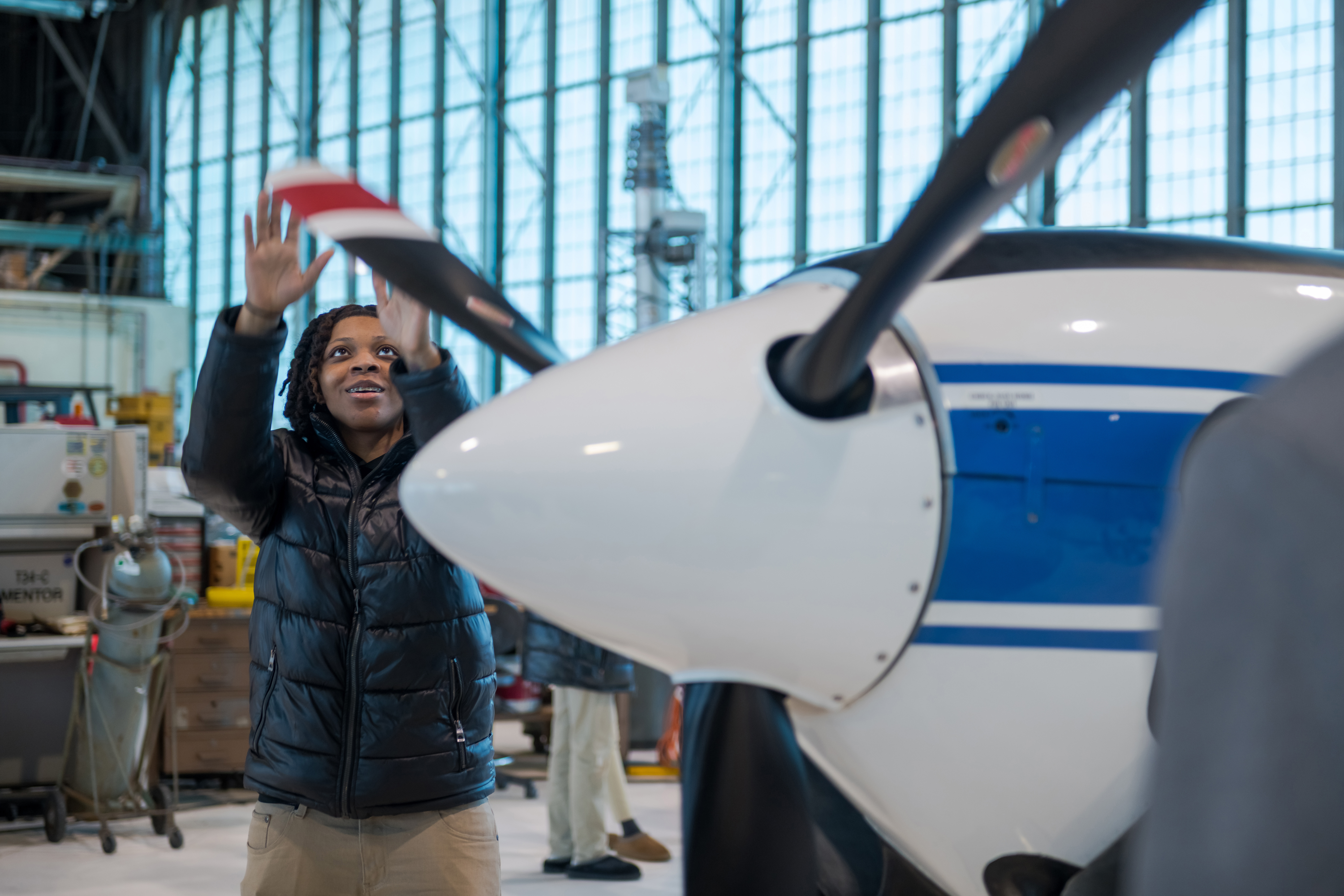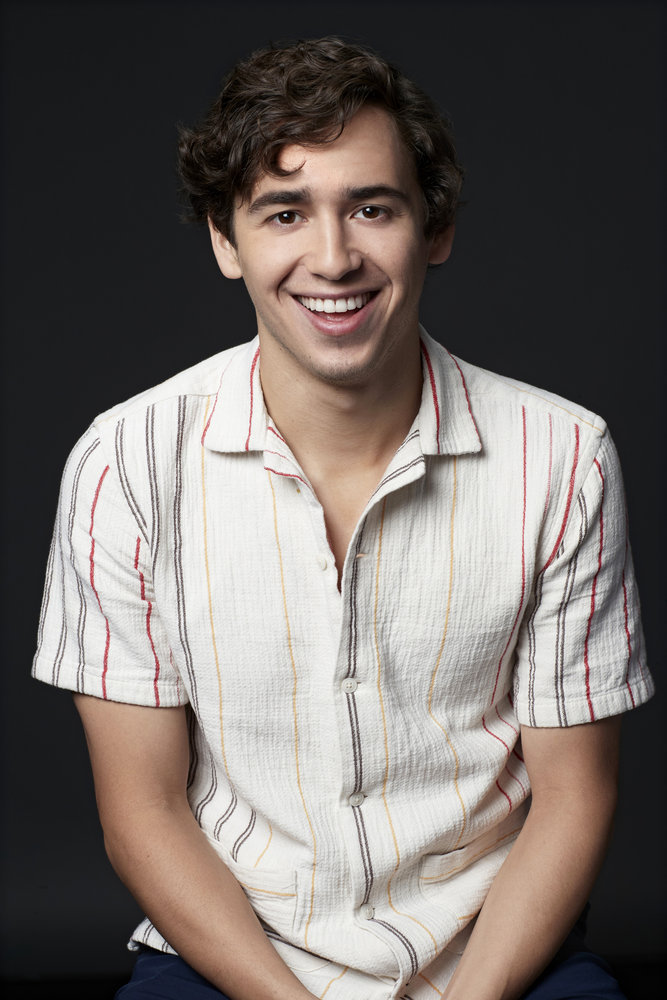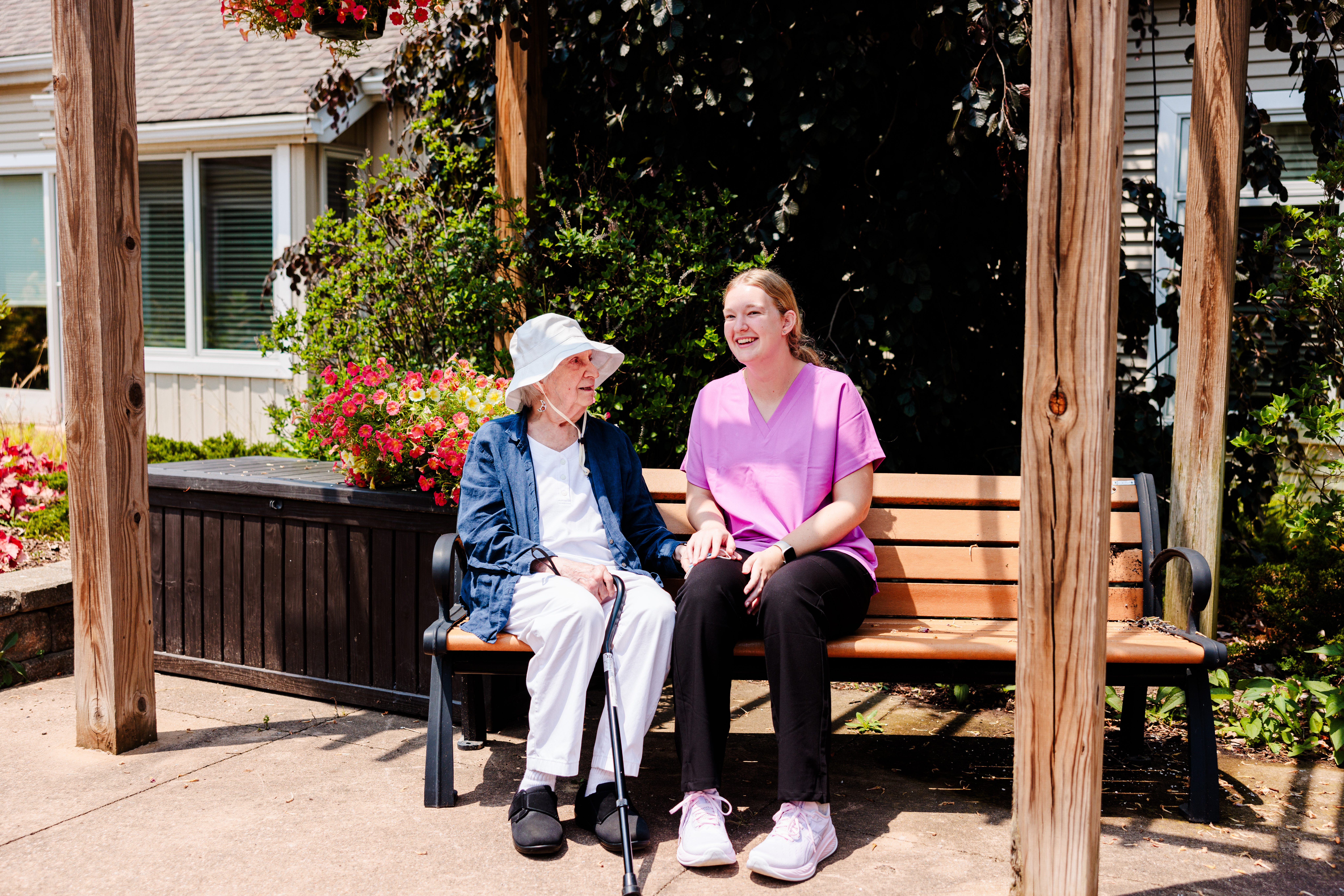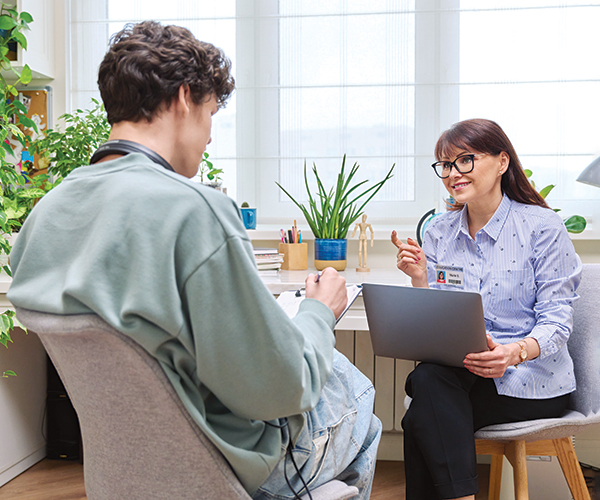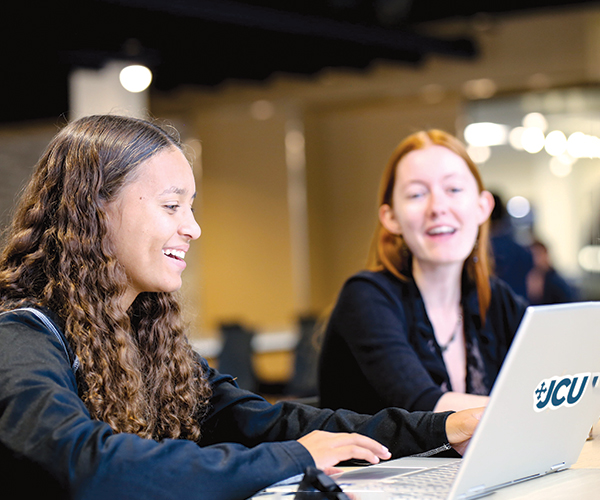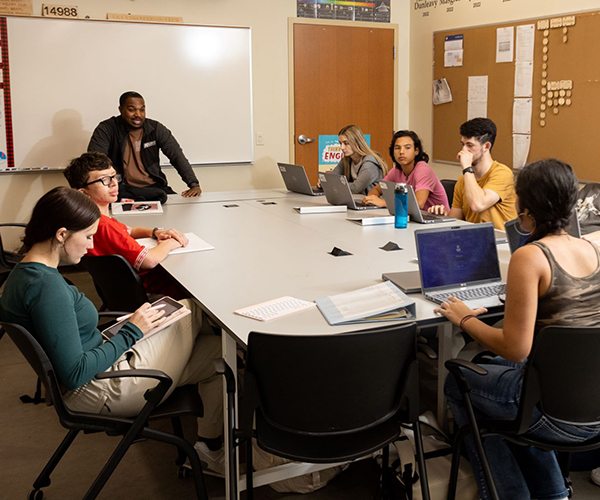Cleveland's Private Schools: Navigating Learning Curves
by Kristen Hampshire | Aug. 25, 2023 | 12:00 PM

Courtesy Lake Ridge Academy
When the Barnes family relocated from the Washington D.C. area to Cleveland, the first order of business even before house hunting was to find a private school for their son Jack.
“In second grade, we discovered that Jack was dyslexic, and we started tutoring right away,” says Kassie Barnes.
She found Lawrence School in Broadview Heights, which specializes in educating students with dyslexia, ADHD, executive functioning needs and other language-based learning differences. Jack enrolled as a fourth grader, and he excelled through eighth grade when Barnes seriously considered her son’s goal to attend Penn State University. He had always been educated in small-class environments. Jack’s eighth-grade class included about 40 kids.
On a college-prep track, Barnes says, “From where we were to State College, Pennsylvania, was going to be too big of a jump. We needed to figure out something, and I wanted to see what else Cleveland had to offer.”
Barnes sits on the board of Lawrence School and credits it for preparing Jack for his next big step.
“They cracked the code for my son,” she says, a lump in her throat and some tears. “It was … just fabulous.”
Barnes felt Jack was ready for take-off in an environment with a larger student body, a vibrant sports program that would appeal to him — wrapped with learning supports so he could succeed and prepare for college.
A few other parents she knew had smoothly transitioned their kids to St. Edward High School in Lakewood, which offers a robust inclusion program accommodating students with state Individualized Education Plans (IEP) and 504 plans. The school is also home to the St. Andre Scholars Program, a stand-out model in the private school community for students who require more intense supports and a modified curriculum.
The family met with Matt Altieri, associate dean of student support services.
“I continued to email him like any anxious mother would do and he assured me, ‘Kassie, based on what you are telling me about Jack and his transcripts, we can get it done.’”
If you’re thinking private school is out of reach for a child who is neurodivergent or veers off the mainstream learning curve, that’s simply not the case.
Ultimately, private schools can be “specialists,” explains Amy Sheeler, Lawrence School’s director of student advocacy and support services.
“Whether that is accelerated academics or helping students with learning differences understand how they best learn to make progress academically, we have that advantage over a public school that is taxed with educating everyone across the spectrum of need.”
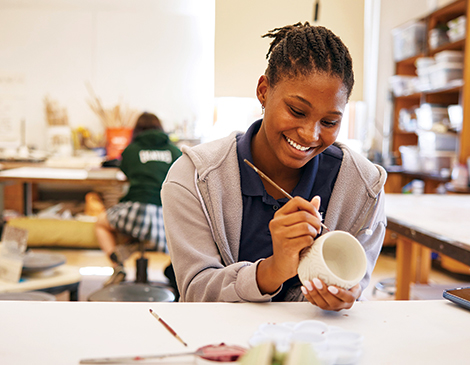
Curriculum & Connections
The benefits of a private school for students who require accommodations include smaller classroom sizes. This allows for more personalized instruction and small-group attention that can help with mastering concepts by breaking them down into manageable steps. It’s also more engaging for students who have difficulty attending.
But above all, relationships and a sense of community are reasons why some families opt for private education for their students who require various supports.
When Guy and Katie Trinetti’s son Frankie visited Lake Catholic High School to see if it would be a fit, his IEP for reading comprehension and fluency was the key consideration. But ultimately, the comfort level sold him.
“He shadowed, came home and said, ‘This is where I’m going,’ immediately,” Katie says.
The Trinettis figured he’d probably be a better fit in the school district since he is on an IEP. But Lake Catholic has an intervention specialist, Kevin Morton, who serves about a dozen students on learning plans. “Our students are getting more individualized, personalized instruction in a private environment,” he says. “Parents want to know we are here to develop the whole student by focusing on self-advocacy and confidence.”
Frankie typically spends his 42-minute study hall period with Mr. Morton, reviewing assignments and working through projects that require more hands-on assistance. Their oldest son, Charlie, is strong academically but has an accommodation plan to manage learning with ADHD and anxiety. Now, Charlie is in honors math and Spanish.
“He picks and chooses which classes he feels he needs pulled out for,” Katie says.
Altieri at St. Ed’s emphasizes the collaboration necessary to serve students who require learning support.
“What makes our program unique is we have individualized relationships with families because we are a private school,” he says.
After all, they’re in the people business. Teaching kids involves connecting with families, too.
St. Ed’s principal Matthew Stepnowsky says, “We want our students to know they belong at St. Ed’s, and that goes beyond accommodations. It includes really getting to know the student, the family and, then, the follow through.”
St. Edward High School stands out among private Catholic schools delivering special services for its interventionist resources, inclusion program and the St. Andre Scholars Program, which started eight years ago with two students, one with Down’s Syndrome and the other on the Autism spectrum. The students’ brothers were attending St. Ed’s.
“The question we wanted to solve was how to provide a St. Ed’s education to students with significant learning needs,” Stepnowsky says.
This is a bold approach in the private school arena, though more schools are thinking outside of the box to find ways to diversify their student populations to include learners with varying needs, Sheeler says.
“Once we stopped thinking about what other schools were doing and leaned into our mission and what is right for kids, everything opened up,” Stepnowsky says. “We’re serving each kid for who he is and not who we want him to be. We tell students, the ‘you’ that you share with us is going to make us a stronger school. And we really believe in that.”
This means creating social pathways for students to work and to play together. It means providing accessible tutoring services during the day — for all students, not just those on learning plans, Altieri points out. Jack Barnes often stops at the library for some extra homework help. Two hours of every student’s school day is designed specifically for this purpose, if needed.
Deciding Factors
Not all private schools are equipped or designed to educate students with learning differences. Some are specially designed for this purpose but still might not suit a child’s profile. How can parents vet the possibilities?
First, keep all avenues open.
“Don’t assume that an independent or private school can’t meet your child’s needs if they have learning differences,” says Linda Kozler, director of student support and campus wellness at Lake Ridge Academy, where a class size of six students is common. “I’ve had a number of families tell me, ‘Yes, you are providing all of the accommodations we have on the plan, but it’s the way those are being delivered that has made all the difference for my child.’”
For students with an IEP or 504, ask schools what resources are in place at the school to deliver on the plan.
“We don’t have some of the same staffing as the public sphere,” Kozler says, pointing to physical therapy or paraprofessionals (aides). “We honor those but we can’t always provide them. Families can contract with someone outside of school, sign a release, and we will partner with them.”
Also, find out if the school will accommodate or modify — an important distinction in learning plans. Accommodations support the existing curriculum, such as providing more time to take tests or small-group support. Modifications actually change the curriculum.
In Lake Ridge Academy’s case, the school accommodates different learners but maintains the same academic rigor for all students. St. Ed’s inclusion program allows for accommodations; the St. Andre Scholars Program modifies curriculum based on students’ IEPs and special needs.
How the school collaborates with public school districts is also key for students on an IEP or 504.
Home districts “own” the plans that private schools implement. So come time to update the plans, ideally all parties are involved.
“We work with every school district to make sure they have what they need and to provide input for IEPs,” Altieri says, adding that this coordination is crucial. “It’s a missing piece that many people don’t realize — the time and effort put into developing relationships with the school districts.”
Parents should ask how support is delivered. Will your student be pulled out of the classroom? “What will they miss if they are pulled out?” Sheeler says. “How will that work be made up?”
Barnes adds, “Ask what the school has in terms of personnel because it’s one thing to give lip service and another to have dedicated staff.”
Private school isn’t necessarily the answer.
Independent schools are not required to accommodate IEPs or 504s, and they do not have to modify classes to be sure all students can access the curriculum. But public schools in Ohio are mandated by the Individuals with Disabilities Education Improvement Act (IDEA), which requires districts to deliver free, appropriate public education in the least restrictive environment. This means public schools serve children of all needs, no matter what. And they have on-staff or contracted OT, SLP and PT services, along with intervention specialists and paraprofessionals.
“Sometimes, a public school is the best option because they are required by law to provide instruction in all areas of need, whereas independent schools can determine admission based on their staffing capabilities and what works within their mission,” Sheeler says.
Overall, parents should initiate a straightforward conversation about the school’s philosophy about accommodating different learners.
At St. Ed’s, it’s about taking the “need” out of special services and focusing on learning success.
“In the past, there was a stigma, so I use the term ‘need’ to ‘deserve,’” Stepnowsky says. “You don’t need support, you deserve it. Everyone deserves support. At the end of the day, we’re dedicated to making students feel like they belong to something much bigger than themselves and that everyone here has their backs.”
Start your day the best way by signing up for our free daily newsletter. Arriving in your inbox every morning to keep you in-the-loop on the best guides, home and style tips, and news briefs for all things Cleveland. Click here to subscribe.
Trending
-
1
-
2
-
3
-
4
-
5

